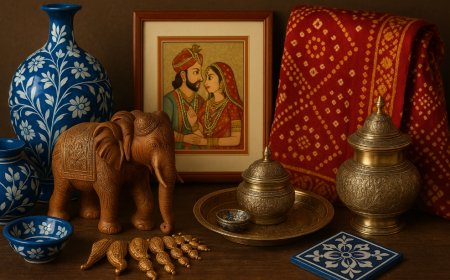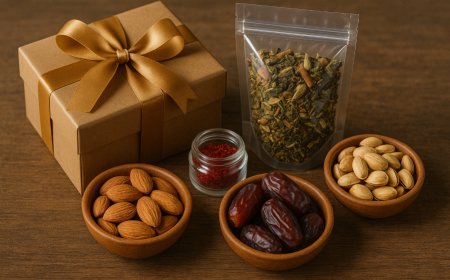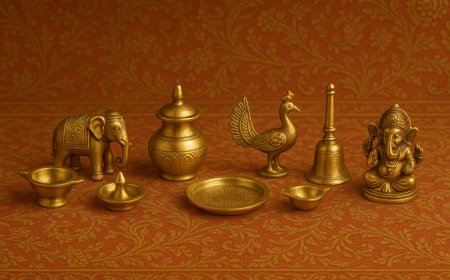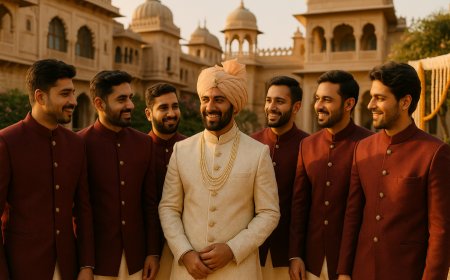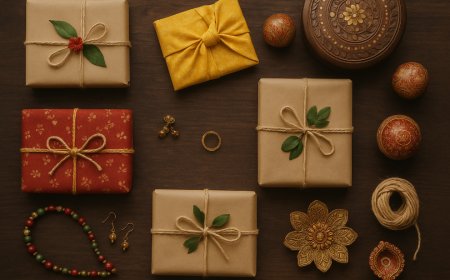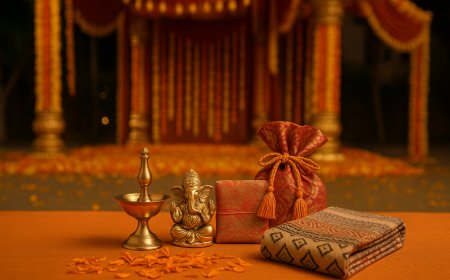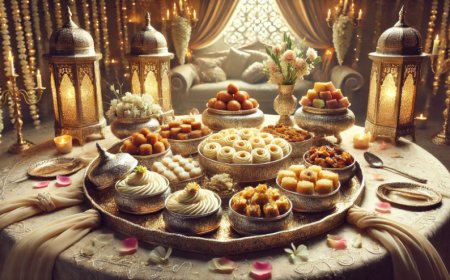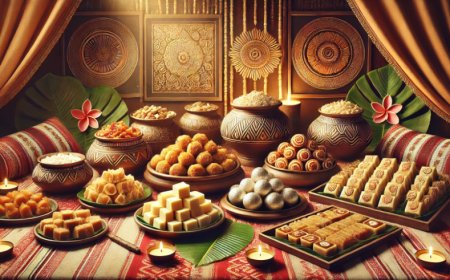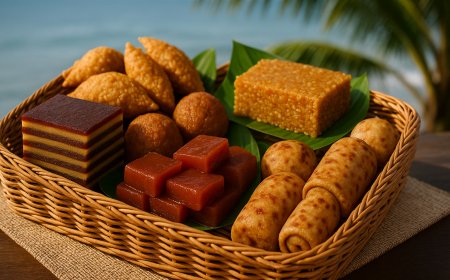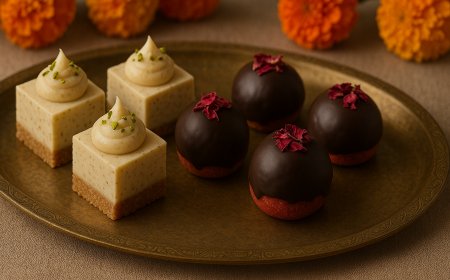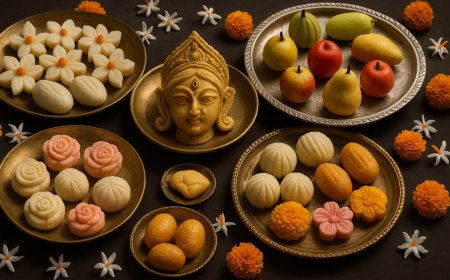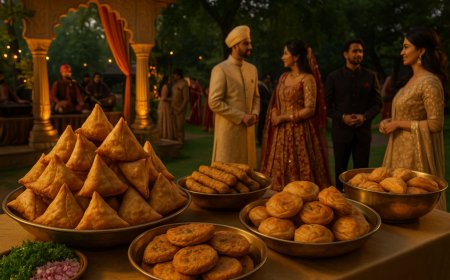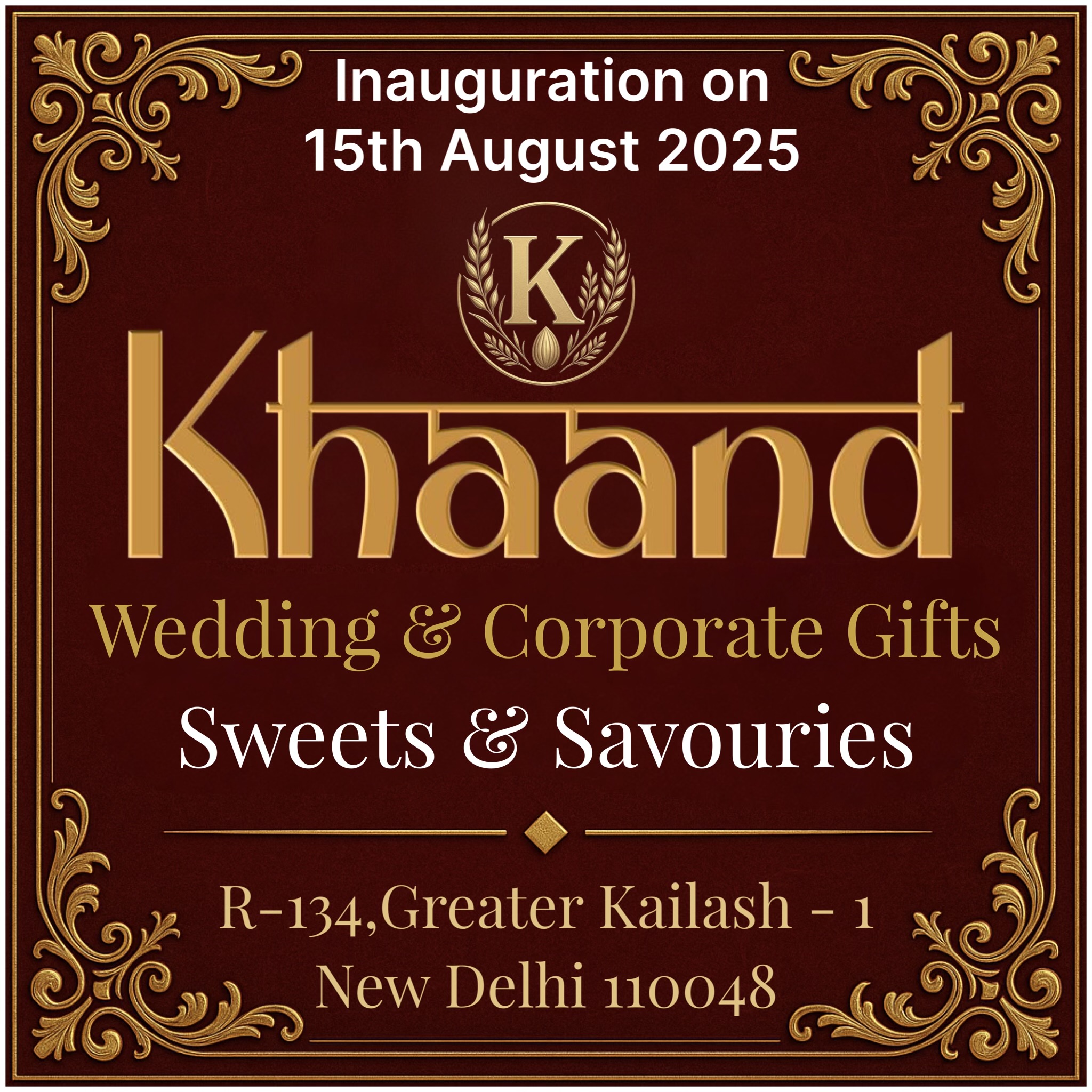Silk Saree and Dhoti Sets: Regional Wedding Attire Gifts Across India
Discover authentic silk saree & dhoti sets for Indian weddings. Complete guide to regional varieties, Delhi vendors, pricing & cultural significance. Expert buying tips included.
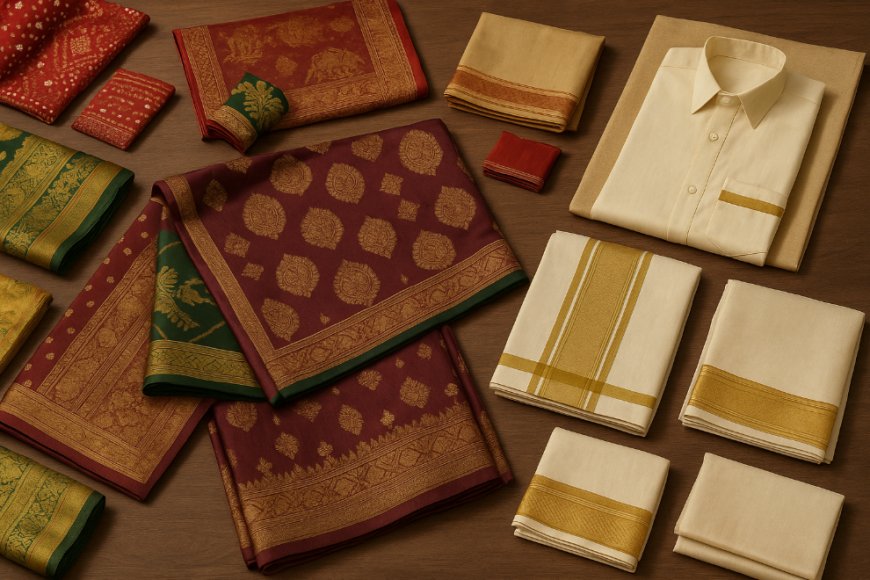
Silk sarees and dhoti sets serve as the foundation of Indian wedding traditions, representing continuity between past and present generations. These exquisite garments carry within their weaves the stories of master craftsmen, the blessings of ancestors, and the hopes of families embarking on new journeys together. From the rich burgundy silks of Banaras to the temple-inspired motifs of Tamil Nadu, each piece reflects the unique artistic heritage of its region.
Today's wedding planners face the delightful challenge of selecting appropriate traditional attire that honors regional customs while meeting contemporary expectations. Whether sourcing bridal trousseau items, choosing gifts for the groom's family, or ensuring wedding party members are appropriately dressed, understanding the nuances of these traditional garments becomes crucial.
This comprehensive guide explores the cultural depth, regional distinctions, and practical considerations surrounding silk sarees and dhoti sets in Indian weddings. We'll journey through the best sourcing destinations in Delhi, decode quality indicators, and provide expert insights to help you make informed decisions that will be treasured for generations.
Cultural & Regional Significance
Historical Foundation
The legacy of silk sarees and dhoti sets in Indian matrimonial customs spans over four millennia, with archaeological evidence from the Harappan civilization revealing sophisticated textile traditions. Ancient Sanskrit texts describe these unstitched garments as divine clothing, blessed by the gods and suitable for life's most sacred moments.
Through successive dynasties, these garments evolved from simple drapes to elaborate ceremonial attire. The introduction of silk cultivation techniques through ancient trade networks transformed regional textile traditions, creating distinctive weaving styles that became symbols of local pride and artistic achievement. Religious scriptures emphasize the spiritual significance of these garments, particularly during wedding ceremonies where they represent purity, prosperity, and divine blessing.
The dhoti holds special reverence in Hindu tradition, being considered the most spiritually appropriate garment for sacred rituals. Its unstitched nature symbolizes humanity's original state of innocence, making it the preferred choice for grooms during wedding ceremonies where they temporarily embody divine principles.
Regional Distinctions
Northern Territories
The northern regions celebrate the opulent Banarasi silk tradition, characterized by elaborate brocade work incorporating precious metal threads. These sarees feature distinctive Persian and Mughal design influences, with intricate floral patterns and geometric motifs creating stunning visual narratives. Wedding ceremonies in this region typically favor deep reds and royal golds, colors believed to invoke prosperity and marital harmony. Men traditionally choose silk dhotis with ornate borders, complemented by matching silk shirts and ceremonial scarves.
Southern Kingdoms
South Indian wedding traditions revolve around the magnificent Kanjeevaram silk saree, renowned for its lustrous texture and temple-inspired artistic elements. These masterpieces feature contrasting borders and pallus, often depicting mythological scenes and architectural motifs from ancient temples. The traditional Madisaar draping style holds special significance in Tamil weddings. Men embrace the veshti tradition, with the formal panchakacham style for ceremonies and simpler versions for daily functions, always accompanied by the angavastram and silk upper garments.
Western Territories
The western states showcase vibrant tie-dye traditions through Bandhani and mirror-work Gharchola sarees. Rajasthani and Gujarati wedding customs emphasize bold colors and geometric patterns that reflect the region's desert heritage and royal history. The distinctive Maharashtrian nine-yard nauvari saree represents female strength and independence. Men often wear dhotis with ornate jackets or kurtas, reflecting the region's historical blend of indigenous and Mughal influences.
Eastern Regions
Bengal and Assam contribute unique textile traditions through narrative Baluchari sarees and the rare golden Muga silk. These regions emphasize storytelling through fabric, with sarees featuring detailed scenes from epics and local folklore. The classic Bengali red and white combination holds deep spiritual significance. Men typically prefer handloom dhotis paired with kurtas and traditional towels, maintaining the region's commitment to indigenous textile traditions.
Central Heartland
The central regions offer elegant Chanderi and Maheshwari sarees, known for their delicate transparency and subtle beauty. These areas often serve as cultural bridges, incorporating elements from surrounding regions while maintaining distinct local characteristics in their wedding attire preferences.
Contemporary Evolution
Modern Indian weddings demonstrate remarkable adaptability while preserving traditional essence. Contemporary couples increasingly seek pieces that honor ancestral customs while accommodating modern lifestyle demands. Designer interpretations now offer easier-to-wear versions of traditional drapes, while destination weddings have sparked innovation in lightweight alternatives that maintain ceremonial dignity.
The growing emphasis on sustainable fashion has revitalized interest in authentic handloom products, with couples specifically seeking pieces that support traditional artisan communities. This trend reflects a deeper understanding of these garments' cultural significance beyond their aesthetic appeal.
Comprehensive Selection Guide
Fabric Categories and Characteristics
Premium Silk Varieties:
Pure Mulberry Silk: The ultimate choice for wedding ceremonies, offering unmatched luster and durability. Premium Kanjeevaram and Banarasi varieties showcase the finest craftsmanship, with prices reflecting the quality of silk and intricacy of weaving. Investment range: ₹18,000 to ₹3,00,000.
Temple Silk Collections: Sacred designs inspired by religious architecture and mythology, particularly popular for traditional ceremonies. These pieces often feature pure gold zari work and time-honored motifs. Price bracket: ₹25,000 to ₹1,50,000.
Heritage Weaves: Authentic regional specialties including Mysore silk, Uppada, and Pochampally varieties. Each carries unique cultural significance and artistic traditions. Investment range: ₹20,000 to ₹2,00,000.
Traditional Dhoti Classifications:
Ceremonial Silk Sets: Complete wedding ensembles including dhoti, shirt, towel, and ceremonial cloth. These sets ensure coordinated traditional appearance. Price range: ₹10,000 to ₹80,000.
Regional Specialties: Panchakacham style for South Indian ceremonies, four-yard versions for North Indian traditions, and regional variations for specific community requirements. Cost range: ₹8,000 to ₹60,000.
Cotton-Silk Blends: Comfortable alternatives for extended ceremonies, offering traditional appearance with enhanced comfort. Budget range: ₹4,000 to ₹20,000.
Quality Assessment Guidelines
Silk Authentication Techniques:
- Examine fiber consistency and natural sheen characteristics
- Test fabric weight and drape quality
- Verify certification marks and weaver signatures
- Assess zari purity through professional evaluation
- Check color fastness and fabric stability
Craftsmanship Evaluation:
- Inspect weaving density and pattern precision
- Examine border alignment and pallav design quality
- Assess finishing techniques and edge treatments
- Verify traditional motif authenticity
- Check overall construction integrity
Selection Strategy Framework
Cultural Appropriateness Considerations: Match garment styles with specific regional and community traditions, ensuring ceremonial requirements are met while respecting family preferences and religious guidelines.
Occasion-Specific Planning: Distinguish between main ceremony requirements, pre-wedding function needs, and reception preferences. Plan coordinated sets for family members while maintaining individual style preferences.
Climate and Comfort Factors: Consider seasonal variations, ceremony duration, and venue characteristics when selecting fabric weights and styles. Ensure comfort without compromising traditional appearance.
Delhi's Premier Shopping Destinations
Elite Collections
Heritage Silk Emporium (South Extension)
- Specialty Focus: Authentic South Indian silk traditions with certified artisan partnerships
- Unique Advantages: Direct relationships with weaving communities, authenticity guarantees, expert consultation services
- Quality Standards: Silk mark certified products, traditional weaving techniques, heritage designs
- Customer Rating: 4.6/5 based on premium service and product authenticity
- Investment Range: ₹20,000 - ₹2,80,000 for bridal collections
- Special Services: Custom design consultation, international shipping, heirloom documentation
Designer Ethnic Collections (Multiple Locations)
- Specialty Focus: Contemporary interpretations of traditional designs with fusion elements
- Unique Advantages: Modern styling approaches, celebrity designer collaborations, trendsetting collections
- Quality Standards: Premium fabric sourcing, innovative design elements, luxury presentation
- Customer Rating: 4.4/5 for design innovation and service quality
- Investment Range: ₹25,000 - ₹3,50,000 for designer pieces
- Special Services: Personal styling, alteration expertise, complete bridal packages
Established Market Centers
Traditional Textile Hub (Chandni Chowk)
- Specialty Focus: Wholesale authentic textiles with extensive variety and competitive pricing
- Unique Advantages: Bulk purchasing options, traditional vendor relationships, authentic regional pieces
- Quality Standards: Established vendor credentials, traditional weaving methods, diverse regional representations
- Customer Rating: 4.1/5 for variety and traditional authenticity
- Investment Range: ₹10,000 - ₹85,000 for various quality levels
- Special Services: Bulk discounts, packaging services, regional specialty sourcing
Central Textile District (Karol Bagh)
- Specialty Focus: Balanced selection of traditional and contemporary options with family business heritage
- Unique Advantages: Generational expertise, established customer relationships, comprehensive collections
- Quality Standards: Mixed quality ranges, established vendor reputations, authentic regional varieties
- Customer Rating: 4.2/5 for reliability and diverse offerings
- Investment Range: ₹12,000 - ₹1,20,000 for complete collections
Value-Oriented Options
Community Market Center (Sarojini Nagar)
- Specialty Focus: Affordable alternatives and function wear with reasonable quality standards
- Unique Advantages: Budget-friendly pricing, variety for different occasions, accessibility for all budgets
- Quality Standards: Mixed quality levels, suitable for pre-wedding functions, good value propositions
- Customer Rating: 3.9/5 for affordability and variety
- Investment Range: ₹3,000 - ₹30,000 for various occasions
- Special Services: Alteration facilities, bulk buying advantages, seasonal collections
Local Textile Market (Lajpat Nagar)
- Specialty Focus: Regional varieties with moderate pricing and established vendor relationships
- Unique Advantages: Quality-price balance, authentic regional pieces, established market reputation
- Quality Standards: Good quality assurance, reliable vendor networks, authentic traditional designs
- Customer Rating: 4.0/5 for value and authenticity
- Investment Range: ₹6,000 - ₹65,000 for quality collections
Digital Platform Options
Traditional Craft Specialists (Online with Delhi Services)
- Specialty Focus: Authentic regional specialties with artisan partnerships and quality guarantees
- Unique Advantages: Direct artisan connections, quality documentation, convenient ordering systems
- Investment Range: ₹5,000 - ₹1,80,000 across all categories
- Special Services: Quality guarantees, return policies, expert consultations, doorstep delivery
Vendor Comparison Analysis
| Vendor Category | Location Type | Price Range | Quality Rating | Specialization | Service Level | Best For |
| Heritage Silk Emporium | Premium Store | ₹20,000-₹2,80,000 | 4.6/5 | South Indian Silks | Exceptional | Bridal Collections |
| Designer Collections | Multi-location | ₹25,000-₹3,50,000 | 4.4/5 | Contemporary Fusion | Premium | Designer Pieces |
| Chandni Chowk Hub | Traditional Market | ₹10,000-₹85,000 | 4.1/5 | Regional Varieties | Standard | Bulk Purchases |
| Karol Bagh District | Established Area | ₹12,000-₹1,20,000 | 4.2/5 | Mixed Collections | Good | Family Shopping |
| Sarojini Nagar | Community Market | ₹3,000-₹30,000 | 3.9/5 | Function Wear | Basic | Budget Options |
| Lajpat Nagar | Local Market | ₹6,000-₹65,000 | 4.0/5 | Value Collections | Standard | Quality-Price Balance |
| Online Platforms | Digital Service | ₹5,000-₹1,80,000 | 4.2/5 | Convenience | Variable | Remote Shopping |
Professional Recommendations & Best Practices
Strategic Planning Timeline
Initial Research Phase (6-8 Months Prior): Begin exploring authentic options, understanding regional preferences, and establishing quality benchmarks. This period allows for thorough research and custom order placement for unique pieces.
Selection and Ordering Phase (4-5 Months Prior): Finalize main ceremony choices, place orders for custom pieces, and begin secondary item selection. This timeline ensures adequate production time for handwoven specialties.
Completion Phase (2-3 Months Prior): Complete all purchases, arrange for alterations, and finalize presentation packaging. This allows buffer time for any last-minute adjustments or additional requirements.
Final Preparation (2-4 Weeks Prior): Conduct final fittings, prepare presentation materials, and organize distribution logistics. Keep emergency alternatives ready for unexpected situations.
Authentication and Quality Verification
Professional Assessment Techniques: Engage textile experts for valuable piece authentication, verify weaver credentials and origin documentation, and ensure proper certification for premium purchases.
Vendor Reliability Indicators: Evaluate business establishment history, customer testimonial authenticity, return policy transparency, and professional service standards before making significant investments.
Investment Protection Strategies: Document purchases with detailed descriptions and photographs, maintain proper storage conditions, and consider insurance coverage for valuable pieces that will serve as family heirlooms.
Budget Optimization Approaches
Strategic Investment Planning: Allocate higher budgets for main ceremony pieces that will become heirlooms, while choosing cost-effective options for pre-wedding functions and extended family gifts.
Timing Advantages: Shop during off-peak seasons for better pricing, take advantage of festival sales for significant savings, and consider bulk purchasing for family gifts to negotiate favorable terms.
Quality-Value Balance: Invest in authentic handloom pieces for long-term value, consider regional specialties that offer better price-quality ratios, and balance premium main pieces with practical secondary selections.
Customer Experience Insights
Anita Mehta, New Delhi: "Our family's wedding shopping experience at the traditional silk emporiums in South Extension exceeded all expectations. The expertise in traditional draping styles and authentic regional varieties helped us create a memorable ceremonial wardrobe that honored our cultural heritage."
Vikram Singh, Gurgaon: "For our son's wedding, we discovered exceptional value in the established markets of Chandni Chowk. The variety of dhoti sets and traditional accessories allowed us to outfit the entire wedding party while maintaining authenticity and staying within our planned budget."
Kavitha Reddy, Noida: "The fusion approach offered by contemporary designers perfectly matched our destination wedding requirements. We maintained cultural significance while adapting to modern venue needs, creating a perfect balance between tradition and practicality."
Rohit Agarwal, Faridabad: "The online platform experience surprised us with its quality assurance and expert consultation services. Despite initial skepticism about purchasing traditional wear online, the detailed descriptions and return policies provided confidence in our selections."
Comprehensive FAQ Guide
Q1: How should I calculate silk saree quantities for a 250-guest wedding celebration? A: Plan for 30-35 silk sarees for immediate and close family members, with 20-25 premium pieces for mothers, aunts, and sisters, plus 10-15 elegant options for special guests. Include 8-12 dhoti sets for male family members and key participants.
Q2: What advance planning timeline ensures the best selection and pricing? A: Premium handwoven pieces require 5-6 months advance ordering, especially during peak wedding seasons. Standard authentic pieces need 3-4 months for best selection. Rush orders are possible but limit choice and may increase costs significantly.
Q3: Do Delhi vendors provide shipping services to other Indian cities? A: Most established vendors offer nationwide shipping with specialized packaging for delicate items. Costs typically range from ₹300-800 depending on value and destination. Premium pieces receive additional protective packaging and insurance coverage.
Q4: How can I ensure proper long-term storage and maintenance? A: Store in temperature-controlled, dry environments with regular airing. Use acid-free tissue paper for folding, cotton covers for zari protection, and natural insect deterrents. Professional cleaning services are recommended for valuable pieces before long-term storage.
Q5: Should I consider recipient regional backgrounds when selecting gifts? A: Absolutely essential. Tamil recipients appreciate Kanjeevaram styles, Bengali families prefer Baluchari designs, while Punjabi families favor Banarasi varieties. For dhoti sets, South Indians prefer panchakacham styles, while North Indians choose four-yard versions.
Q6: What price differences exist between handwoven and power-loom alternatives? A: Authentic handwoven pieces cost 3-4 times more than machine-made alternatives but offer superior quality, cultural authenticity, and investment value. Handwoven Kanjeevaram sarees start at ₹30,000, while similar-looking power-loom versions begin around ₹8,000.
Q7: Are customization services available from Delhi vendors? A: Premium vendors offer extensive customization including color modifications, design alterations, and size adjustments. Customization typically adds 25-40% to base costs and requires 8-12 weeks additional time for completion.
Q8: What payment arrangements do vendors typically offer? A: Standard practice requires 40-60% advance for custom orders, with balance upon completion. Established vendors may offer installment plans for large orders. Some premium stores provide credit facilities for regular customers or substantial purchases.
Q9: How should I handle urgent changes or cancellation requirements? A: Cancellation policies vary significantly by vendor and customization level. Ready-made pieces allow cancellations up to 24-48 hours with minimal charges. Custom pieces typically involve 30-60% cancellation fees depending on production stage.
Q10: Which items have seasonal availability or timing considerations? A: Certain regional specialties like Assam Muga silk are seasonally produced. Wedding collection launches typically occur in July-August for peak season availability. Festival-specific designs have limited seasonal availability. Plan accordingly for unique regional requirements.
Conclusion
Silk sarees and dhoti sets transcend mere wedding attire to become cultural ambassadors, carrying forward the artistic heritage and spiritual significance of Indian matrimonial traditions. These magnificent garments serve as tangible connections between generations, preserving ancient weaving traditions while adapting to contemporary celebrations.
The selection process becomes a journey of cultural discovery, connecting modern families with regional artisan communities and time-honored craftsmanship traditions. Each carefully chosen piece contributes to a larger narrative of cultural preservation and family heritage creation.
Delhi's diverse marketplace offers unprecedented access to authentic regional varieties, from the premium collections of established emporiums to the traditional treasures of historic markets. Understanding quality indicators, cultural significance, and vendor reliability ensures investments that will be treasured across generations.
As you embark on this meaningful selection process, remember that these garments will become part of family stories, worn during future celebrations and passed down as precious heirlooms. The care taken in selection today creates tomorrow's treasured memories.
Explore the detailed vendor options presented in this guide, considering cultural appropriateness and quality standards that match your specific requirements. Visit WeddingGifts.com.in for additional resources and complementary wedding gift categories that will enhance your celebration's cultural authenticity.
Important Disclaimer
Comprehensive Notice: WeddingGifts.com.in presents this information as a cultural and commercial guide based on extensive market research and traditional knowledge. Please review the following important considerations:
Vendor Information Accuracy: All vendor details, ratings, and pricing information represent general market research conducted in the Delhi NCR region as of July 2025. Specific contact details, operating schedules, and pricing structures are subject to change without notice. We strongly recommend direct verification with vendors before making purchase decisions.
Cultural Information: Traditional practices and cultural significance details are presented based on general knowledge and may vary within specific communities and regions. Families are encouraged to consult with cultural elders and community experts for specific ceremonial requirements and traditional practices.
Pricing Guidelines: All mentioned price ranges represent market research approximations and actual costs may vary significantly based on quality levels, customization requirements, seasonal demand, and individual vendor policies. These figures should be used as general guidelines rather than definitive pricing information.
Quality Assurance: While quality assessment guidelines are provided, WeddingGifts.com.in cannot guarantee the quality or authenticity of products purchased from mentioned vendors. Buyers are advised to conduct independent quality evaluations and maintain proper documentation for valuable purchases.
No Commercial Endorsement: Mention of specific vendors, brands, or businesses represents general market information and does not constitute endorsement or recommendation by WeddingGifts.com.in. All vendor selections should be based on individual research and requirements.
Regional Practice Variations: Traditional customs and practices may vary significantly within regions and communities. This guide provides general information and should not be considered authoritative for specific cultural or religious requirements.
Liability Limitations: WeddingGifts.com.in assumes no responsibility for purchase decisions, vendor selections, or cultural choices made based on this information. Users are encouraged to conduct independent research and verification before making significant investments.
Information Currency: All information is current as of July 2025. Market conditions, vendor availability, and cultural practices may change over time. Regular updates are recommended for current information.
User Responsibility: Readers bear full responsibility for verifying all information independently and making informed decisions based on their specific cultural requirements, budget constraints, and personal preferences.
For inquiries, corrections, or additional information, please contact us through WeddingGifts.com.in or email info@weddinggifts.com.in.
What's Your Reaction?
 Like
0
Like
0
 Dislike
0
Dislike
0
 Love
0
Love
0
 Funny
0
Funny
0
 Angry
0
Angry
0
 Sad
0
Sad
0
 Wow
0
Wow
0







